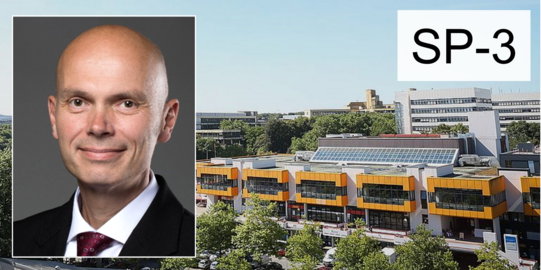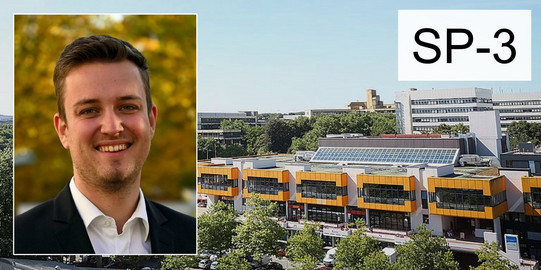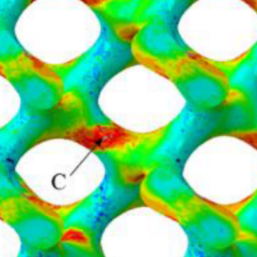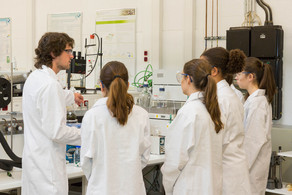Mechanism-based characterization of the fatigue and corrosion fatigue properties of additively manufactured TPMS lattice structures under physiological conditions
The overall objective of the subproject is the holistic characterization of the microscopic and mechanical deformation and damage behavior under cyclic loading as well as corrosive exposure of coated Ti-6Al-4V lattice structures manufactured by means of PBF-LB/M. Due to the complex scenario, the loading conditions will be first regarded separately and later on collectively in order to detect the dominant mechanisms, respectively. After determining the influence of the PBF-LB/M process parameters through performing time-efficient corrosion and quasi-static tests, an optimal parameter set is defined which is used for manufacturing of simplified 2D geometries based on triply periodic minimal surfaces (TPMS). Resulting from the fatigue strength and the cyclic damage mechanisms in air, a favored 2D lattice type will be selected for further characterization of the coating with regard to the load capacity and the corrosive properties. The aim is to establish an extensive understanding of the mechanical and corrosive properties for the simplified 2D geometry which will then be transferred towards 3D lattice structures. To characterize the application-oriented damage behavior, in-vitro corrosion fatigue tests for 3D lattice structures will be conducted. Further on, the mechanical behavior of the bone/implant interface (ex vivo) is characterized and stiffness mismatches (stress shielding) are quantified.
Contact persons:

Prof. Dr.-Ing. habil. Frank Walther





